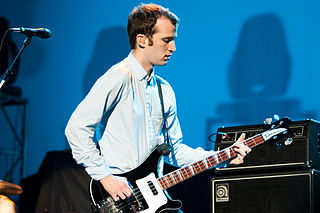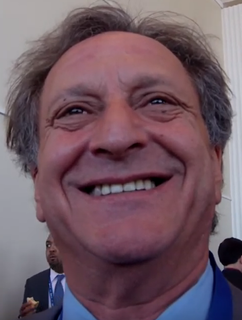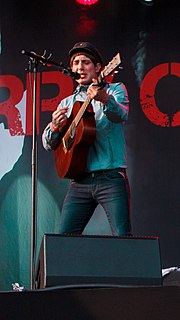A Quote by Joe Lycett
Because lots of LGBTQ people are really smart, and there's so much really interesting reading that can be done, and so much academic writing that's been done about it, people can end up getting quite academic about it.
Related Quotes
I think in general, it's just an interesting age to be at, after college. You spend so much of your life, being on this academic trajectory - and then when it's done - all of a sudden the whole world is maybe open to you. But you're the one that's really in charge of your path. And that can be a really scary thing, I think.
I mean when the book first came out it was not a bestseller, but it got good reviews and at that point I was done writing about Andy, done talking about Andy....but now, I kind of love it. All these smart, attractive young people think I'm cool! So here I am a guy in his sixties with all of these interesting friends in their twenties. It's very stimulating and keeps me very much in the present.
There are a lot of smart people being really thoughtful and writing really interesting things, but that isn't what I want to do. It's never felt like what I've been called to do. And I have to risk sounding really arrogant when I say that because I've gone to Ivy League schools and been privileged in all these ways in the world of ideas, but I'm not as smart as you think. I'm not really depending on what I learned in college to write my books. Those were just parts of my life experience.
Interesting thing that is happening in American society is that people are starting to talk about money. I don't know how you feel about this, but for a long time, nobody was talking about money. It was a secret. And it's kind of very interesting because we do lots of stuff to portray to people about how much money we have, the clothes we wear and the cars we have and the house - they all kind of depict to other people, signal how much money we make, but we don't talk about it specifically.
Well, I don't know anything about television. I'd never done it before. Initially, it was quite daunting to take on so much challenge and so much time with it. I think it is a great outlet for an actress because you really have 13 hours to bring a character to life, which is so much more than with film, and you have the luxury of time to tell a story and to really color a character.
Architecture is really about well-being. I think that people want to feel good in a space... On the one hand it's about shelter, but it's also about pleasure. The intention is to really carve out of a city civic spaces and the more it is accessible to a much larger mass in public and it's about people enjoying that space. That makes life that much better. If you think about housing, education, whether schools and hospitals, these are all very interesting projects because in the way you interpret this special experience.
For ten years, I wrote regular columns about science for women's magazines, and to my knowledge I'm the only person in the world who can say that. This has no kudos in either the science-writing world or the academic world, but it's one of the most challenging things I've ever done. It's much harder to write about cosmology for a magazine like Vogue than for the New York Times, which I've also written for, because you have to imagine that on the page opposite there'll be an advertisement for eyeliner, or an article about the latest trends in skirt length.
Academic writing you have to get right. Fiction you have to get plausible. And there's a world of difference. In a way, if someone says this didn't feel exactly right, I don't care. But that is not okay to do in academia - it's not about feeling. You want to establish a pretty solid case. So did this allow me to express things differently? Absolutely. Another thing I've been thinking about as an academic: our writing style is expository, and in fiction, withholding information matters quite a bit. Withholding things in academia - there's no place for that!

































